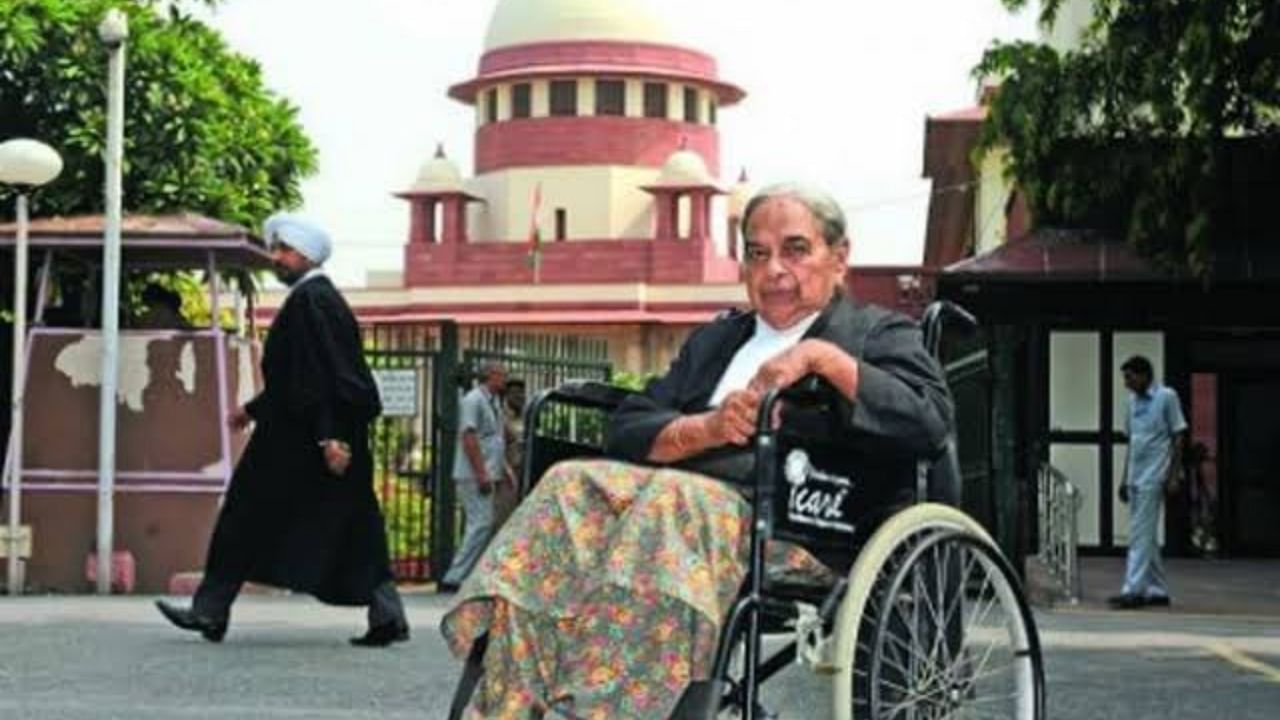
The name of a woman advocate, Lily Thomas, resonates in public memory every time a lawmaker gets disqualified after a conviction in a criminal case with a sentence of not less than two years.
After the swift conviction, sentence and disqualification of Congress leader Rahul Gandhi as a Member of Parliament last week, her name once again came to the fore.
It was she who, apart from an NGO Lok Prahari, through its Secretary S N Shukla, filed the writ petitions which resulted in the landmark judgement in 2013.
The two-judge bench decision took away a privilege accorded by politicians to themselves in Section 8(4) of the Representation of People Act by which they continued to remain an MP or MLA despite being held guilty for an offence with not less than a two-year jail term.
She successfully challenged the constitutional validity of the law. Thomas argued that this provision was a violation of the Constitution's basic structure and principles of democracy and accountability.
Read | Explained: The Lily Thomas case that changed the disqualification law for convicted MPs or MLAs
The Supreme Court eventually ruled in her favour, declaring Section 8(4) unconstitutional, thereby disqualifying convicted lawmakers from holding public office.
Advocate Saju Jakob, who lived with Thomas like an adopted son, said she was very much concerned with criminal politicians taking the benefit of Section 8(4) during the period of 2002-04. So she decided to file this particular PIL in 2005.
"After the judgement in 2013, so many politicians lost their seats. This time, though it is Rahul Gandhi," he said.
Thomas was born in Changanessery, raised in Thiruvananthapuram, and completed her studies in Chennai.
After her law degree, she joined the Madras High Court. She enrolled herself in the LLM course during her initial practice and was awarded the master's degree in law in 1955.
Thomas belonged to the first generation of women lawyers in India and she was the first woman to get an LLM degree from Madras University.
Subsequently, she moved to Delhi to pursue a PhD but discovered that she was not suited to academic life. "I realised that I was not qualified to conduct research, so I practised law in the Supreme Court," she told Jacob, who remained with her till she breathed her last on December 10, 2019.
Former Additional Solicitor General and senior advocate K V Vishwanathan said, "Lily Thomas was a fearless lawyer. In the early volumes of the Indian Law Institute journal, one could find her Monographs published, on important aspects of the law. She mounted an unsuccessful challenge in the early sixties to the Advocate on Record examination system, of the Supreme court. Ever smiling, she had a vast circle of friends in the Supreme court Bar."
Advocate Vipin Nair recalled that Thomas was an eminent lady lawyer and social activist who was involved in several important cases in the Supreme Court. She was one of the earliest legal practitioners, who legally weaponised the concept of PILs for espousing and securing public interest and for advancing social justice.
"Though an AOR herself, she had also challenged the very concept of the AOR system in the Supreme Court on the grounds of violation of equality under Article 14 of the Constitution. The Supreme Court ultimately upheld the AOR system and justified it under the power of the SC to make rules for itself under Article 145 of the Constitution but it showed she was not afraid of to take up a cause," he said.
Lawyers associated with her said that apart from her legal work, advocate Thomas was also active in multiple social and humanitarian causes. She was a member of several NGOs and worked to promote gender equality. Though at the fag end, she became a wheel-chair bound, she never missed visiting the court, showing her indomitable spirit.
"She was a kind soul whose chamber in Supreme Court was a welcome platform for many junior advocates," said another lawyer.
Advocate Lily Thomas passed at the age of 92.
Advocate Jakob said, Thomas, who remained unmarried, lived her life for her fellow citizens and the country's jurisprudential development.
"Thomas was secular to the core. Though a Christian, her last wish was that her body should be burnt as per Hindu traditions and ashes should be immersed in river Ganga and some places in Kerala and some in Chennai's cemetery for burial," he said.
Every year an essay competition is organised in her memory on December 12 for lawyers, law students and journalists, Jakob said.
